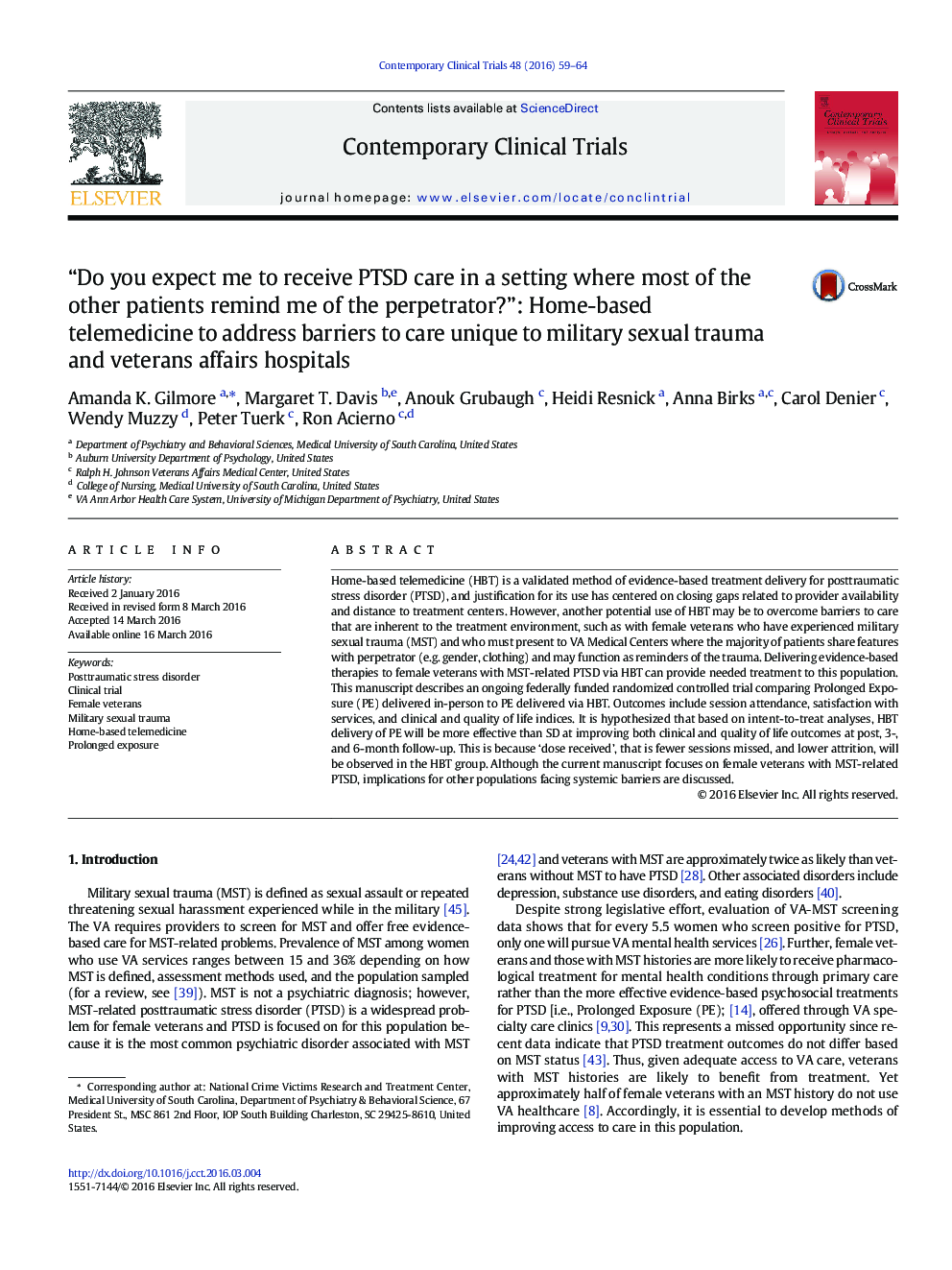| Article ID | Journal | Published Year | Pages | File Type |
|---|---|---|---|---|
| 6150465 | Contemporary Clinical Trials | 2016 | 6 Pages |
Abstract
Home-based telemedicine (HBT) is a validated method of evidence-based treatment delivery for posttraumatic stress disorder (PTSD), and justification for its use has centered on closing gaps related to provider availability and distance to treatment centers. However, another potential use of HBT may be to overcome barriers to care that are inherent to the treatment environment, such as with female veterans who have experienced military sexual trauma (MST) and who must present to VA Medical Centers where the majority of patients share features with perpetrator (e.g. gender, clothing) and may function as reminders of the trauma. Delivering evidence-based therapies to female veterans with MST-related PTSD via HBT can provide needed treatment to this population. This manuscript describes an ongoing federally funded randomized controlled trial comparing Prolonged Exposure (PE) delivered in-person to PE delivered via HBT. Outcomes include session attendance, satisfaction with services, and clinical and quality of life indices. It is hypothesized that based on intent-to-treat analyses, HBT delivery of PE will be more effective than SD at improving both clinical and quality of life outcomes at post, 3-, and 6-month follow-up. This is because 'dose received', that is fewer sessions missed, and lower attrition, will be observed in the HBT group. Although the current manuscript focuses on female veterans with MST-related PTSD, implications for other populations facing systemic barriers are discussed.
Keywords
Related Topics
Health Sciences
Medicine and Dentistry
Medicine and Dentistry (General)
Authors
Amanda K. Gilmore, Margaret T. Davis, Anouk Grubaugh, Heidi Resnick, Anna Birks, Carol Denier, Wendy Muzzy, Peter Tuerk, Ron Acierno,
